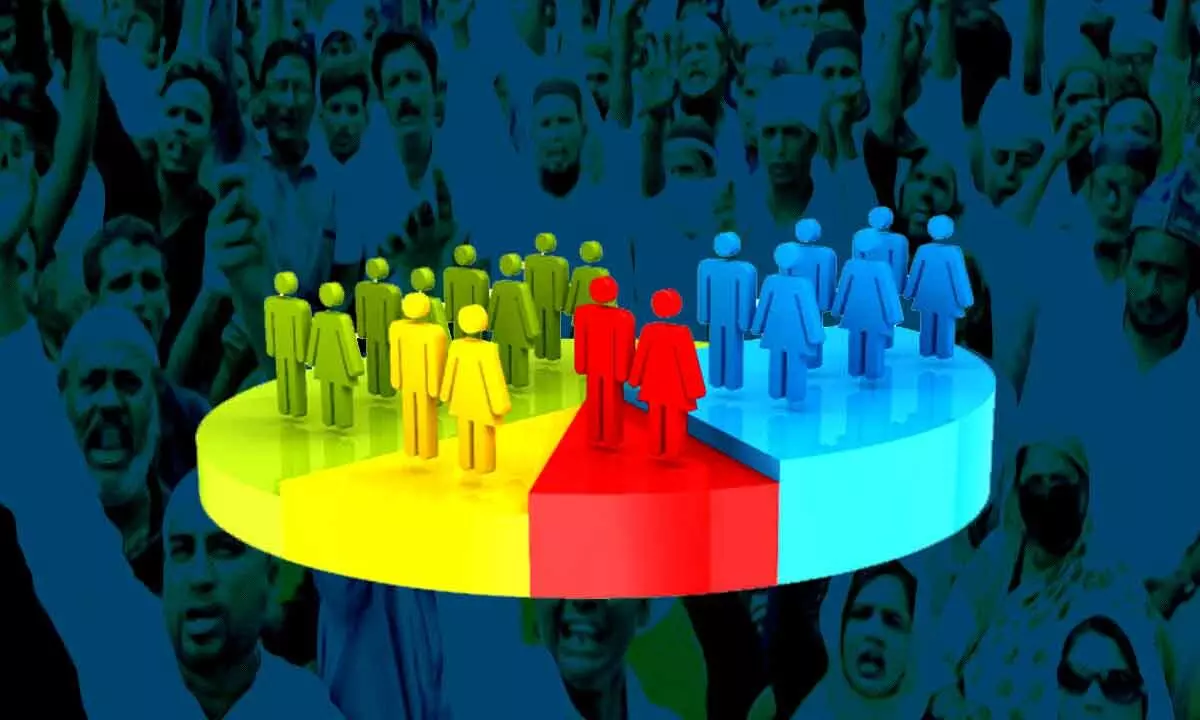Pratik Das, Pune
The recently released findings from the caste survey undertaken by the Bihar government reveal that the most substantial social group in Bihar comprises the extremely backward classes, comprising 36% of the population. Following closely behind are the other backward classes, accounting for 27.13% of the total population.
Collectively, these two categories make up a significant 63% of Bihar’s overall population, which stands slightly above 13.07 crore. In contrast, the general category constitutes 15.52% of the total populace.
According to the findings, the Yadavs, the same social group to which Deputy Chief Minister Tejaswi Yadav belongs, hold the distinction of being the most populous, constituting 14.27% of the total population.
Based on the survey data, the Hindus make up 51.99% of the population, Muslims account for 17.7%, Christians represent 0.05%, Sikhs constitute 0.01%, Buddhists stand at 0.08%, and individuals practicing other religions make up 0.12% of the population.
According to the caste survey, the Khushwaha community comprises 4.27% of Bihar’s population, while the Kurmi community accounts for 2.87% from where Bihar CM Nitish Kumar belongs.
Nitish Kumar extended his congratulations to the entire team involved in the caste-based enumeration work, emphasizing that the survey not only unveiled caste demographics but also provided insights into the economic status of the population.
He remarked that using the information from this report they will initiate further measures for the progress and betterment of all segments of society. He made this statement on the significant occasion of Gandhi Jayanti when the results of the caste-based census in Bihar were released on unanimous approval in the Legislature.
The decision to conduct a caste-based census in Bihar using the state’s own resources was reached with the agreement of all nine political parties in the Bihar Assembly. Subsequently, on 6 June 2022, this decision received approval from the Council of Ministers. As a result, the state government proceeded to conduct the caste-based census using its own funds as stated by Nitish Kumar.
The Bihar caste census findings highlight that OBCs, SCs, and STs collectively constitute 84% of the state’s population. In contrast, out of the 90 secretaries in the central government, only 3 belong to the OBC category, and they are responsible for managing just 5% of India’s budget. Congress MP Rahul Gandhi expressed this concern on platform X.
The BJP accused the state government of exploiting the survey to stir caste tensions for political advantage in the upcoming 2024 Lok Sabha election and the 2025 State Assembly election.
This move faced legal challenges in both the High Court and the Supreme Court. In the Supreme Court, the Central Government argued that only it had the authority to conduct a census or similar activities. Nitish Kumar consistently maintained that the state’s effort was not a caste census but rather a collection of information regarding people’s economic status and caste, with the aim of enabling the government to better serve them.
